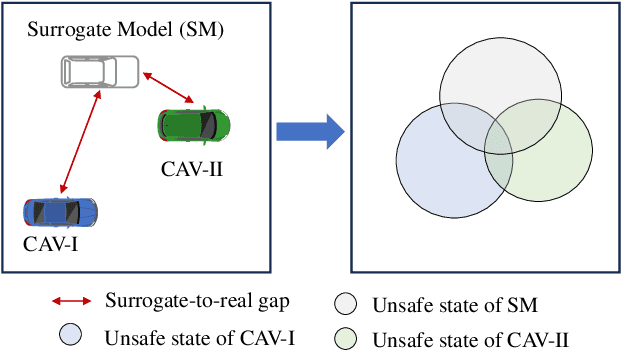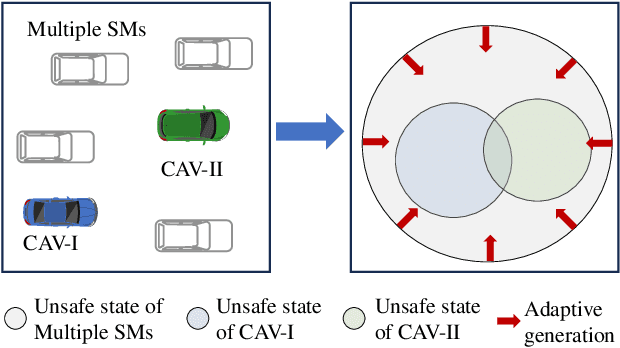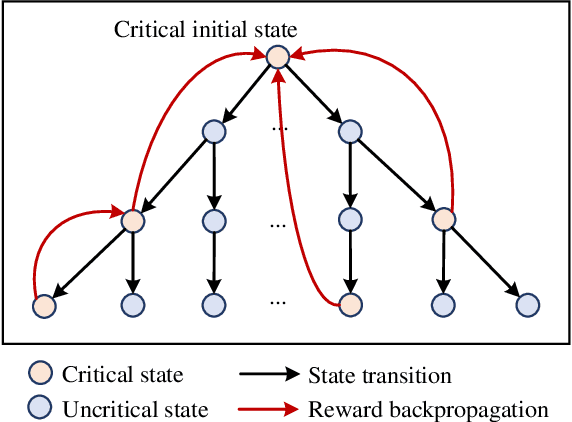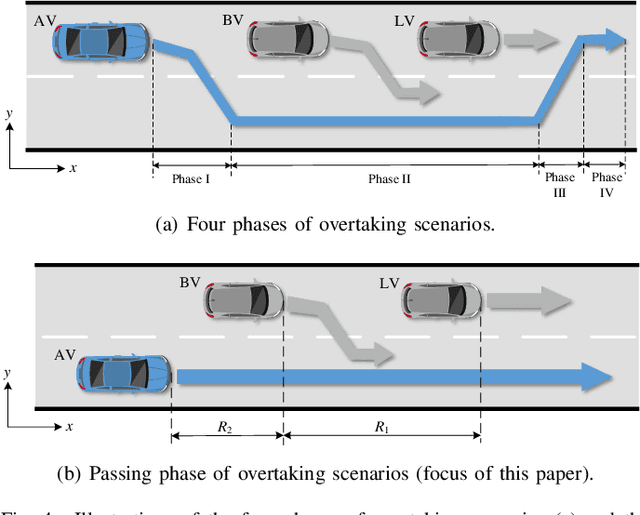Haoyuan Ji
Adaptive Testing Environment Generation for Connected and Automated Vehicles with Dense Reinforcement Learning
Feb 29, 2024



Abstract:The assessment of safety performance plays a pivotal role in the development and deployment of connected and automated vehicles (CAVs). A common approach involves designing testing scenarios based on prior knowledge of CAVs (e.g., surrogate models), conducting tests in these scenarios, and subsequently evaluating CAVs' safety performances. However, substantial differences between CAVs and the prior knowledge can significantly diminish the evaluation efficiency. In response to this issue, existing studies predominantly concentrate on the adaptive design of testing scenarios during the CAV testing process. Yet, these methods have limitations in their applicability to high-dimensional scenarios. To overcome this challenge, we develop an adaptive testing environment that bolsters evaluation robustness by incorporating multiple surrogate models and optimizing the combination coefficients of these surrogate models to enhance evaluation efficiency. We formulate the optimization problem as a regression task utilizing quadratic programming. To efficiently obtain the regression target via reinforcement learning, we propose the dense reinforcement learning method and devise a new adaptive policy with high sample efficiency. Essentially, our approach centers on learning the values of critical scenes displaying substantial surrogate-to-real gaps. The effectiveness of our method is validated in high-dimensional overtaking scenarios, demonstrating that our approach achieves notable evaluation efficiency.
 Add to Chrome
Add to Chrome Add to Firefox
Add to Firefox Add to Edge
Add to Edge